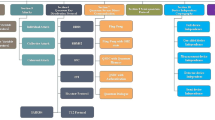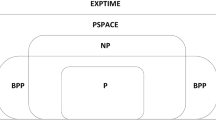Abstract
Randomness expansion is an important application of quantum theory in which random sources are used as seeds to produce fresh random bits. Existing randomness expansion protocols employ the two-party model, and the randomness gained by the participants is not easily controlled. In this study, we investigated three-party randomness expansion protocols based on the sequential quantum random access codes in a semi-device-independent framework. We added a middle participant to the two-party randomness expansion protocol to make the randomness obtained by the final participant controllable. In the three-party protocol, the quantum random access code (QRAC) is implemented twice in sequence, and each participant can extract randomness from his outcome. By finding the optimal trade-off between the two QRACs, we deduce the analytic relationship between the two-dimensional quantum witness violation and certified randomness of the last two participants.



Similar content being viewed by others
References
Dhara, C., De La Torre, G., Acín, A.: Can observed randomness be certified to be fully intrinsic. Phys. Rev. Lett. 112, 100402 (2014)
Colbeck, R., Renner, R.: Free randomness can be amplified. Nature Phys. 8, 450–453 (2012)
Um, M., Zhang, X., Zhang, J.H., et al.: Experimental certification of random numbers via quantum contextuality. Sci. Rep. 3, 1627 (2013)
Gallego, R., Masanes, L., Torre, G.D.L., et al.: Full randomness from arbitrarily deterministic events. Nat. Commun. 4, 2654 (2013)
Miller, C.A., Shi, Y.: Universal security for randomness expansion from the spot-checking protocol. SIAM J. Comput. 46(4), 1304–1335 (2017)
Nieto-Silleras, O., Bamps, C., Silman, J., et al.: Device-independent randomness generation from several Bell estimators. New J. Phys. 20, 023049 (2018)
Colbeck, R., Kent, A.: Private randomness expansion with untrusted devices. J. Phys. A 44(9), 095305 (2010)
Pironio, S., Acín, A., Massar, S., et al.: Random numbers certified by Bell’s theorem. Nature 464(7291), 1021 (2010)
Li, H.W., Yin, Z.Q., Wu, Y.C., et al.: Semi-device-independent random-number expansion without entanglement. Phys. Rev. A 84, 034301 (2011)
Li, H.W., Pawłowski, M., Yin, Z.Q., et al.: Semi-device-independent randomness certification using \(n\rightarrow 1\) quantum random access codes. Phys. Rev. A 85, 052308 (2012)
Li, D.D., Wen, Q.Y., Wang, Y.K., et al.: Security of semi-device-independent random number expansion protocols. Sci. Rep. 5, 15543 (2015)
Zhou, Y.Q., Li, H.W., Wang, Y.K., et al.: Semi-device-independent randomness expansion with partially free random sources. Phys. Rev. A 92, 022331 (2015)
Zhou, Y.Q., Gao, F., Li, D.D., et al.: Semi-device-independent randomness expansion with partially free random sources using \(3\rightarrow 1\) quantum random access code. Phys. Rev. A 94, 032318 (2016)
Ambainis, A., Nayak, A., Ta-Shma, A., et al.: Dense quantum coding and a lower bound for 1-way quantum automata. Proc. 31st Annual ACM Symp. on Theory of Computing (STOC’99). 376–83 (1999)
Tavakoli, A., Hameedi, A., Marques, B., et al.: Quantum random access codes using single \(d\)-Level systems. Phys. Rev. Lett. 114, 170502 (2015)
Wehner, S., Christandl, M., Doherty, A.C.: Lower bound on the dimension of a quantum system given measured data. Phys. Rev. A 78, 062112 (2008)
Ambainis, A., Leung, D., Mancinska, L., et al.: Quantum random access codes with shared randomness. arXiv: 0810.2937 (2008)
Liabøtrø, O.: Improved classical and quantum random access codes. Phys. Rev. A 95, 052315 (2017)
Tavakoli, A., Marques, B., Pawłowski, M., et al.: Spatial versus sequential correlations for random access coding. Phys. Rev. A 93, 032336 (2016)
Curchod, F.J., Johansson, M., Augusiak, R., et al.: Unbounded randomness certification using sequences of measurements. Phys. Rev. A 95, 020102(R) (2017)
Sasmal, S., Das, D., Mal, S., et al.: Steering a single system sequentially by multiple observers. Phys. Rev. A 98, 012305 (2018)
Mohan, K., Tavakoli, A., Brunner, N.: Sequential random access codes and self-testing of quantum measurement instruments. New J. Phys. 21, 083034 (2019)
Aguilar, E.A., Borkała, J.J., Mironowicz, P., et al.: Connections between mutually unbiased bases and quantum random access codes. Phys. Rev. Lett. 121, 050501 (2018)
Santha, M., Vazirani, U.V.: Generating quasi-random sequences from semi-random sources. J. Comput. Syst. Sci. 33, 75–87 (1986)
Foletto, C., Calderaro, L., Vallone, G., et al.: Experimental demonstration of sequential quantum random access codes. Phys. Rev. Res. 2, 033205 (2020)
Acknowledgements
This work was supported by the National Natural Science Foundation of China (Grant Nos. 61701229, 61901218), Natural Science Foundation of Jiangsu Province, China (Grant Nos. BK20170802, BK20190407), Postdoctoral Science Foundation-funded Project of China (Grant Nos. 2018 M630557, 2018T110499), Jiangsu Planned Projects for Postdoctoral Research Funds (Grant No. 1701139 B), The Open Fund of the State Key Laboratory of Cryptology, China (Grant No. MMKFKT201914)
Author information
Authors and Affiliations
Corresponding author
Additional information
Publisher's Note
Springer Nature remains neutral with regard to jurisdictional claims in published maps and institutional affiliations.
Rights and permissions
About this article
Cite this article
Wang, X., Yuan, J., Zhou, Y. et al. Semi-device-independent randomness expansion using \(n\rightarrow 1\) sequential quantum random access codes. Quantum Inf Process 20, 346 (2021). https://doi.org/10.1007/s11128-021-03234-6
Received:
Accepted:
Published:
DOI: https://doi.org/10.1007/s11128-021-03234-6




